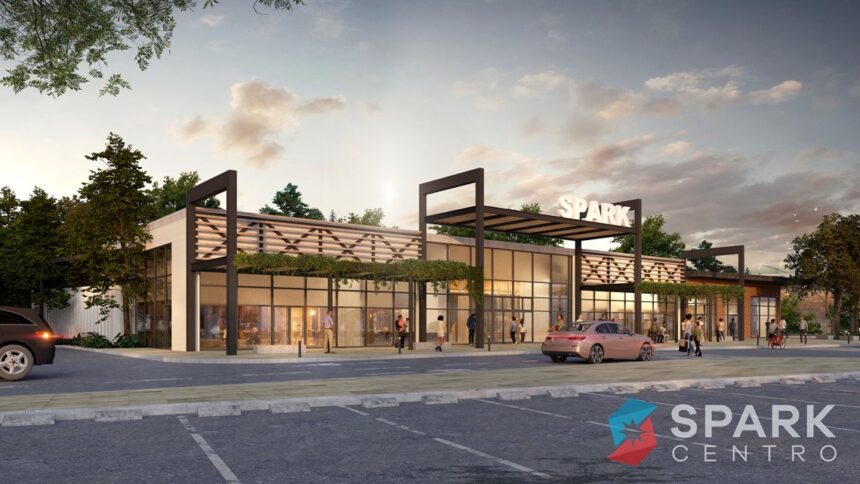Spark Centro is an economic development hub slated for the Albemarle Road corridor of opportunity. Community leaders hope it invigorates the area and its people.
CHARLOTTE, N.C. — A major development coming to Charlotte’s east side is generating some excitement from area leaders and those living and working there.
The economic development hub is called “Spark Centro.” It will sit on nine acres in the City of Charlotte-designated Albemarle Road “corridor of opportunity,” at the intersection of W.T. Harris Boulevard and Albemarle Road.
Spark Centro is set to house offices and spaces for workforce training, entrepreneurship training, networking, recruitment, and business incubation sites for people to test their new business models.
The Latin American Chamber of Commerce of Charlotte (LACCC) recently announced the project, noting it hopes to break ground on the development in June and start moving organizations in by the first quarter of next year.
The project has an investment goal of $20 million and has already garnered at least $4 million, including $1.5 million in Mecklenburg County-allocated American Rescue Plan Act funding.
Community leaders said they hope the campus and the services it offers will boost the economic futures of neighbors, including the large Hispanic community there, and contribute to Charlotte’s overall success.
The LACCC notes the location of the hub is strategic, taking into account the people they hope to serve and the unique barriers to resources those residents and workers face.
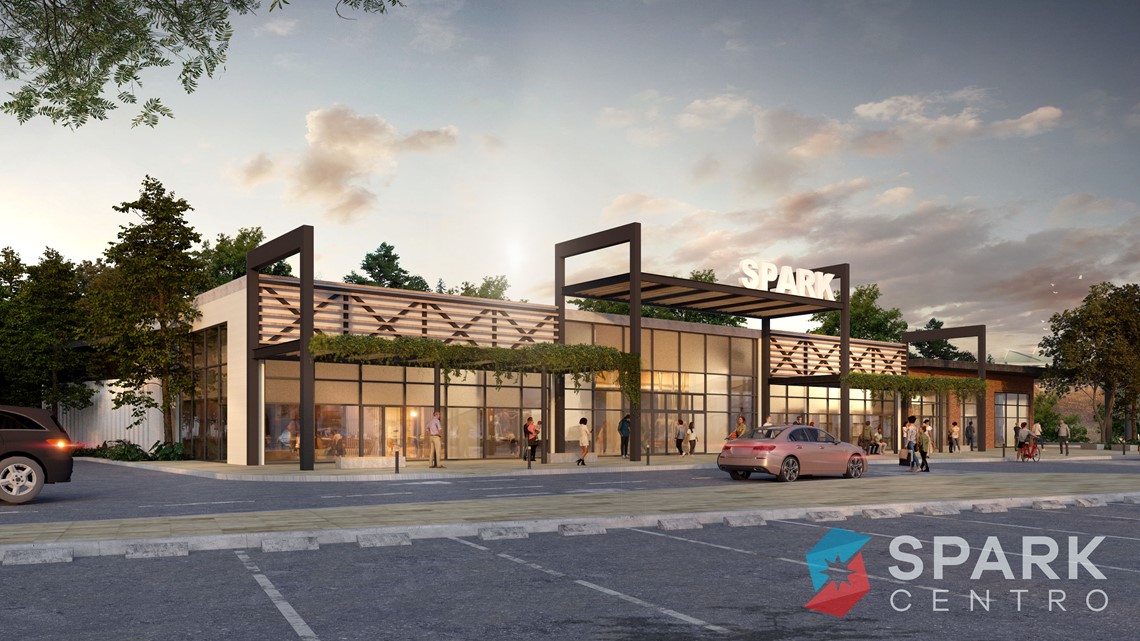
Developing a corridor of opportunity
On Central Avenue, just north of its split with Albemarle Road, sits Manolo’s Bakery, a staple of the neighborhood and the Albemarle Road/Central Avenue corridor of opportunity.
From this spot on Charlotte’s east side, owner Manolo Betancur has watched the area trends for more than two decades.
“Charlotte has been like an airplane,” Betancur said. “The north and the south has gotten one treatment, and the west and the east has another treatment, and the west and east are the most important thing for the airplane to be stable.”
Betancur’s observation of the welfare and opportunities in the Mecklenburg County area corresponds with a well-documented pattern of longstanding disparities in Charlotte called the “crescent and wedge.” As the City of Charlotte notes, communities of color and concentrated poverty are generally found in that crescent or arc, spanning from the west of the county, arcing north and down to the east.

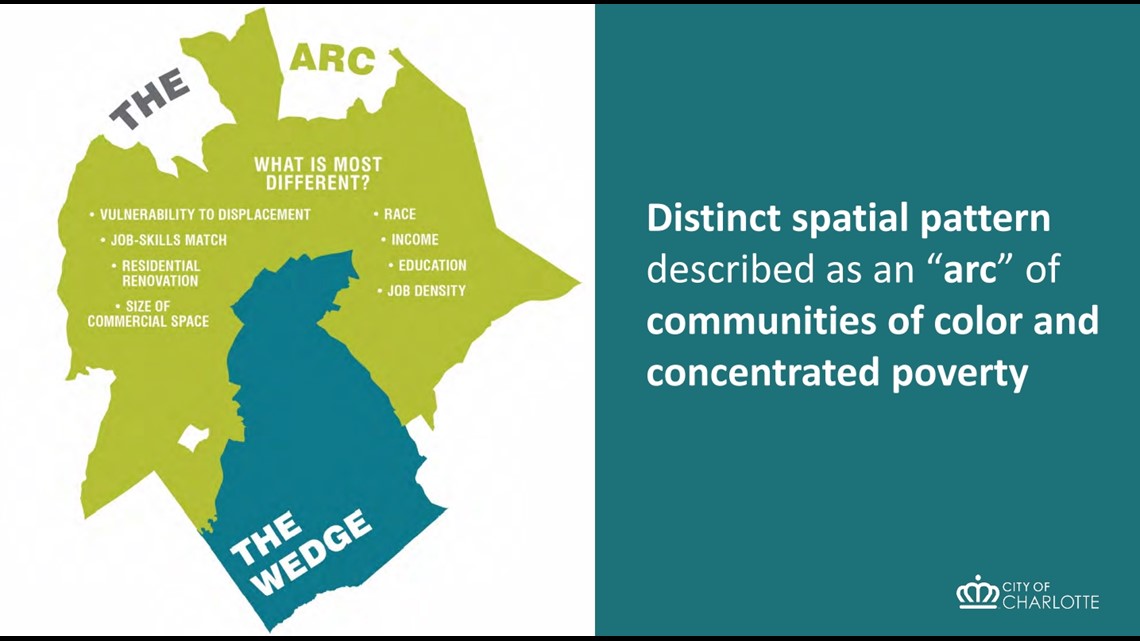
It is on the east side of this arc where community leaders have announced plans for the multipurpose Spark Centro.
Gris Bailey, President of the LACCC, said the hub is meant to, first and foremost, serve the needs of people in the area, but it will also develop an area that could use the attention.
“This is truly an entrepreneurship hub and a workforce development hub,” Bailey said. “It’s an area that the mayor has said … has a lot of opportunity for beautification, for growth, for building.”

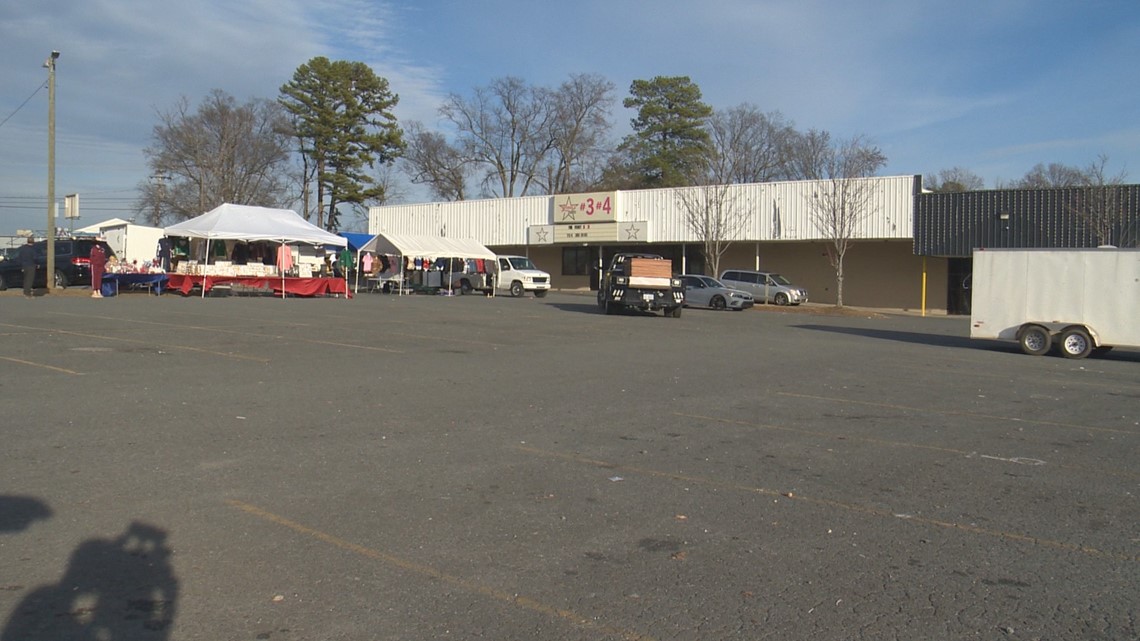
The Albemarle Road/Central Avenue area is one of six “underinvested” areas the City of Charlotte has pinpointed as a “corridor of opportunity,” which are communities in various parts of the city where leaders have committed to spend money and build partnerships to grow Charlotte’s neighborhoods more equitably.
Thus far, the city, corporations, and other corridor partners have invested more than $147 million into this effort.
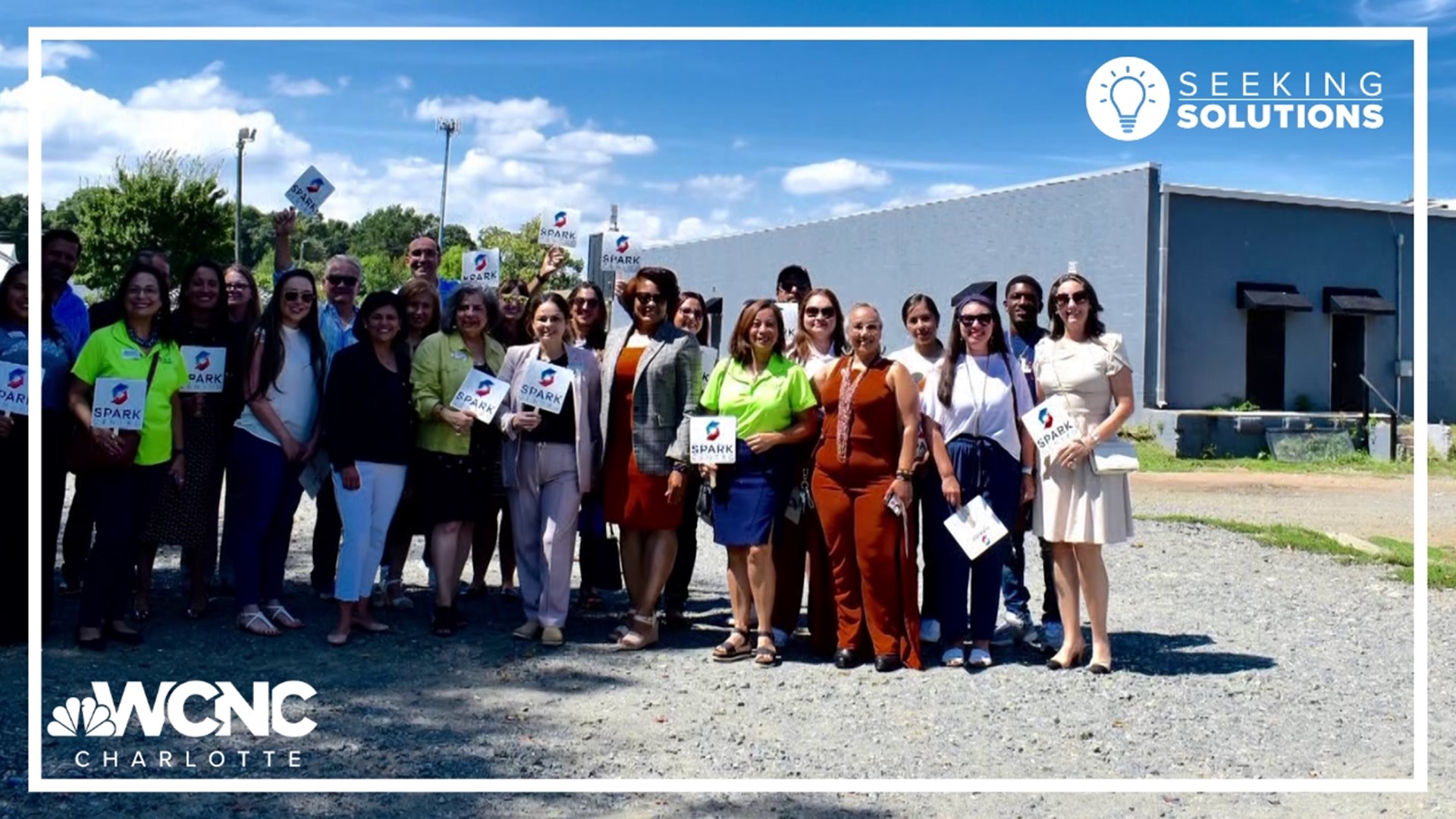
According to a corridor analysis by Kimley-Horn, the Albemarle Road/Central Avenue location primarily contains the neighborhoods of Windsor Park, Eastland, Idlewild, Marlwood, and Hickory Ridge. The analysis shows that people living in this specific corridor, in comparison to Charlotte overall, are younger, have larger households, are less likely to own a home or have access to a car, and are more likely to be living in poverty.
Many there might also be dealing with language barriers. The corridor “hosts a significant concentration of residents with Cuban, Mexican, Puerto Rican, South or Central American or Spanish culture or origin,” according to the analysis.

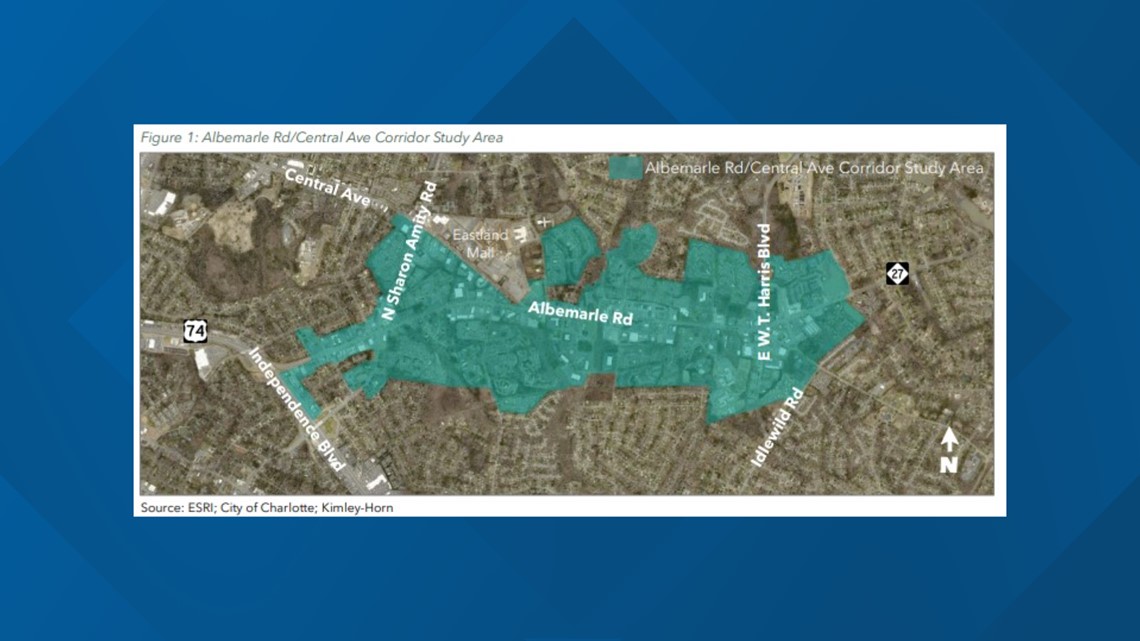
By placing Spark Centro in an accessible area and offering linguistically and culturally accessible services, Bailey said the hub can become an anchor for the business community in the Albemarle corridor.
“The issue has been… particularly with the Latino community… even though there are resources in the city or in other organizations, there’s no trust there,” Bailey said. “It’s very difficult for them to jump out of their comfort zone and go and receive those resources.”
Bailey hopes Spark Centro can become a trusted resource.
Surging Latino startups
When Betancur talks about his bakery and the 20-plus years of work he has invested into it, it becomes clear he is proud of what it symbolizes: An immigrant’s dream realized.
“When I left our country, I was part of the Colombian war,” Betancur said. “My family was the victim of Colombian crime.”
He said the years that followed in the U.S. were also not without struggle.
“I had a deportation order myself,” Betancur said. “I know how broken the system is. I know that my brother has been worrying 12 years for them to become residents, and they haven’t received the document. I know how [worrisome] it is to have immigration here in this parking lot and picking my employees up.”
Betancur said his experiences might be easy for others on Charlotte’s diverse east side to understand, and he is proud of the work being done in the face of obstacles in place.
“It’s just about, you know, keep fighting, keep moving forward and celebrating life,” Betancur said.


According to federal data, more and more Latinos are moving forward as Betancur has done, starting their own businesses.
The Treasury Department reports that Latinos are one of the fastest-growing segments of new business owners. While Latinos make up less than 20% of the U.S. population, they account for 25% of new business applications in 2021, amid a surge in overall startups following the pandemic.
However, recent Stanford research sheds light on some of the disparate hurdles the group faces on the road to entrepreneurship. The research found Latinos with businesses are 50% more likely than white business owners to need funding or financing, but are less likely to be approved for large loans than their white counterparts, even when they have stronger qualifications.
Bailey said Spark Centro will target training and support for this group and others in the area.
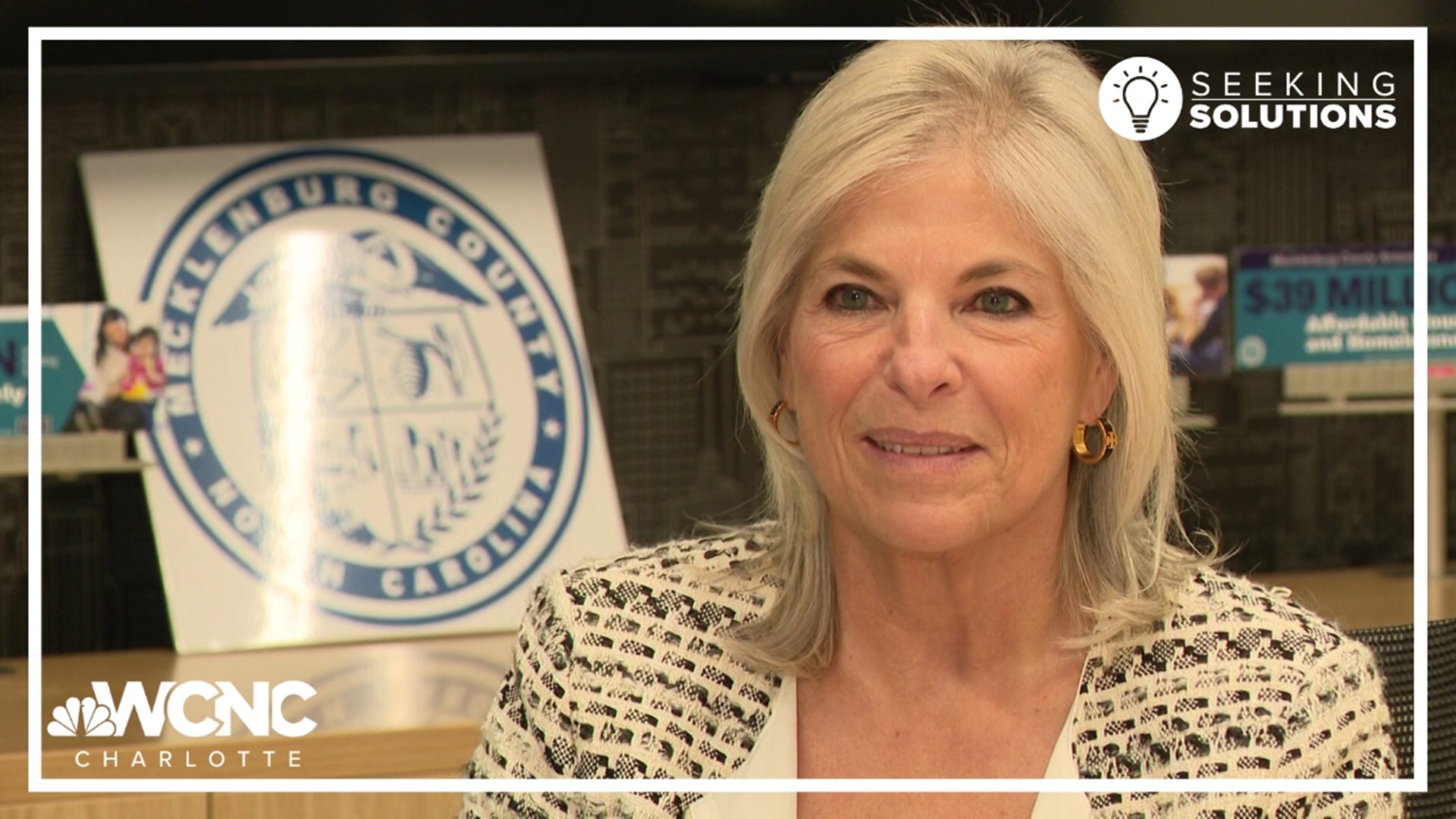
“There are a lot of small businesses, a lot of diverse small businesses,” Bailey said. “So, it’s a prime location to help those businesses professionalize and really grow.”
Dena Diorio, Mecklenburg County Manager, said allocating some of the county’s share of federal pandemic rescue funding toward Spark Centro is seen as an investment in Charlotte’s future.
“You have generational impact when you make these investments,” Diorio said. “So, we might not see them immediately, but we can see them over generations. And I think that you have to be patient. But these types of investments really can last a lifetime.”
“It’s really an incredible opportunity for all of us to learn about those cultures, and to really make investments that are going to drive economic development and workforce development in that community,” Diorio said.
Betancur agrees, saying that giving support equitably makes the whole community stronger.
“It’s about us being together in just one society and working for a better country and our very future,” Betancur said. “We are so blessed to be here.”
High employment and high poverty
Armed with a bachelor’s degree in political science and Spanish, a translation certificate, and a minor in legal studies, Ashley Ureña has dreams of making a career out of public service, but she said the path forward was not always so clear.
“When I was in school, it was just a lot of trying to figure out what I was going to do, how I was going to do it,” Ureña said.
Ureña, who is Dominican-American, notes it is a struggle other first-generation students can likely understand.
“There’s resources out there,” Ureña said. “But a lot of the times, because our parents didn’t even know about those resources, we also don’t know where to even look.”
The UNC Charlotte graduate ended up finding Cultivando Talento, a LACCC program meant to round out the life skills of young workforce hopefuls.
“Financial literacy, how to build a resume, how to use LinkedIn,” Ureña said, describing some of the topics the program touches on. “It’s helped so much, especially for first-generation students to make sure that you set yourself up and you’re not falling behind.”

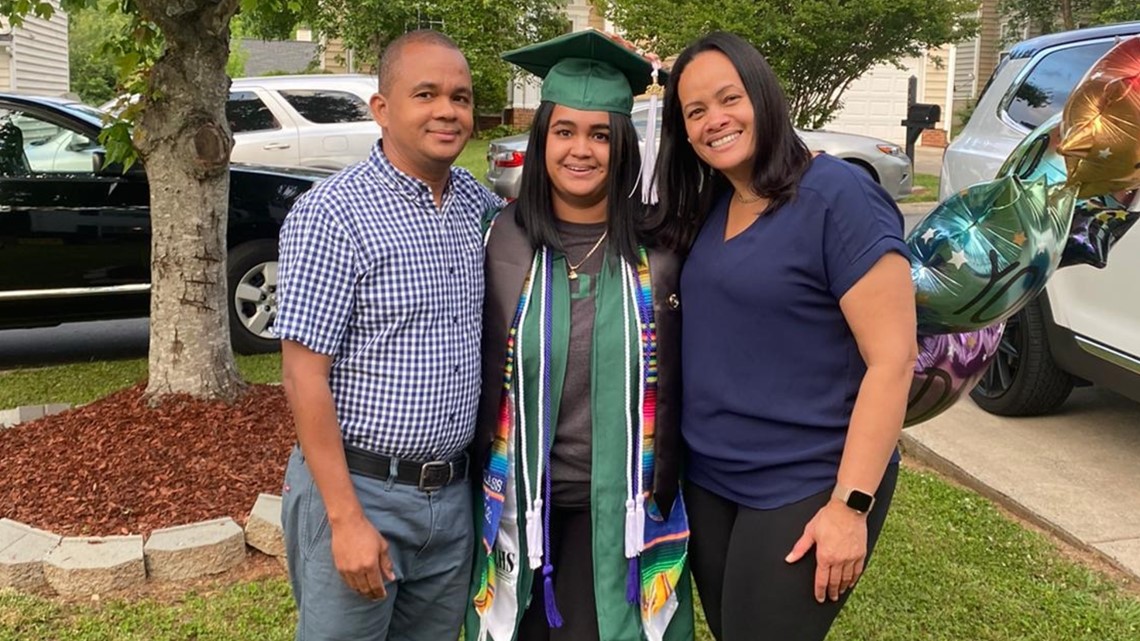
Cultivando Talento is just one type of training program slated for Spark Centro, and Bailey said it is an offering that can benefit many living in the Albemarle corridor.
“Employment is high in this area, but a lot of the people who are working are under the poverty line,” Bailey said.
According to Kimley-Horn’s corridor analysis, 18.5% of people in the Albemarle Corridor are living in poverty (compared to the rate of 11.1% for Charlotte overall). The median household income is just over $44,000, compared to Charlotte’s overall median income of $63,500.

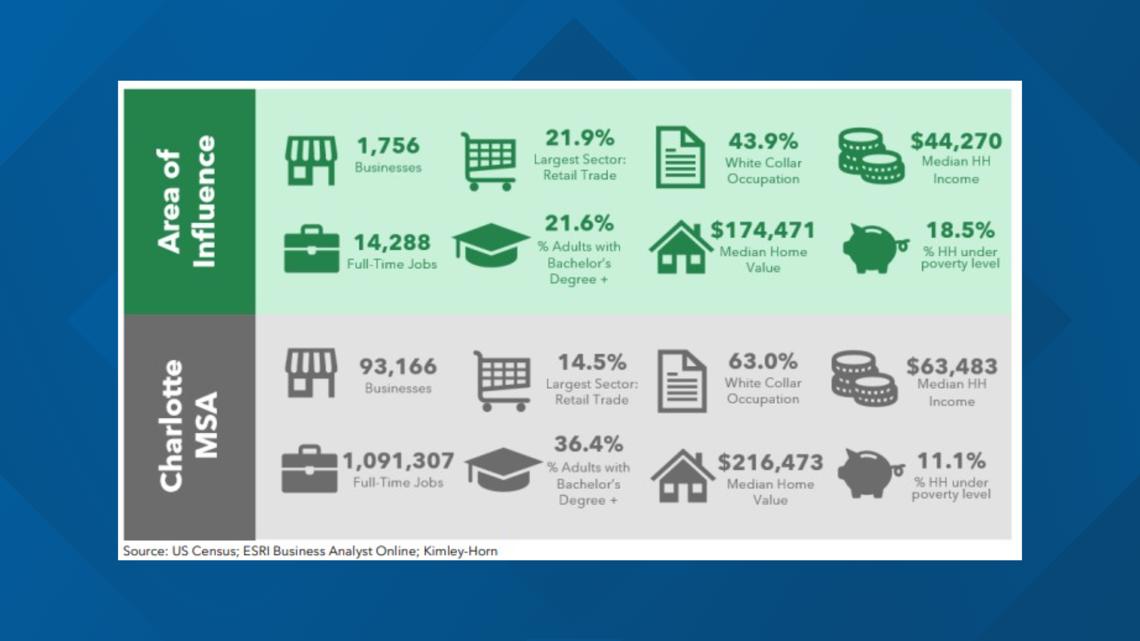
The U.S. Bureau of Labor Statistics reports that Hispanic participation in the workforce surpasses the national average, with 67.2% of the group working, compared to 62.9%. Hispanic families, on average, make nearly $20,000 a year less than non-Hispanic white families, and they are twice as likely to be living at the poverty level, with 17% of Hispanics living in poverty, in comparison to 8.2% of non-Hispanic whites.
Bailey hopes offering workforce training programs can improve career skills and outcomes for the area, and as people learn new job skills and can move to other careers, employers might benefit, too.
“It’ll create a pipeline for a lot of these organizations,” Bailey said. “So, you know, a healthcare pipeline, a skills trade pipeline, a bilingual pipeline, a tech pipeline.”
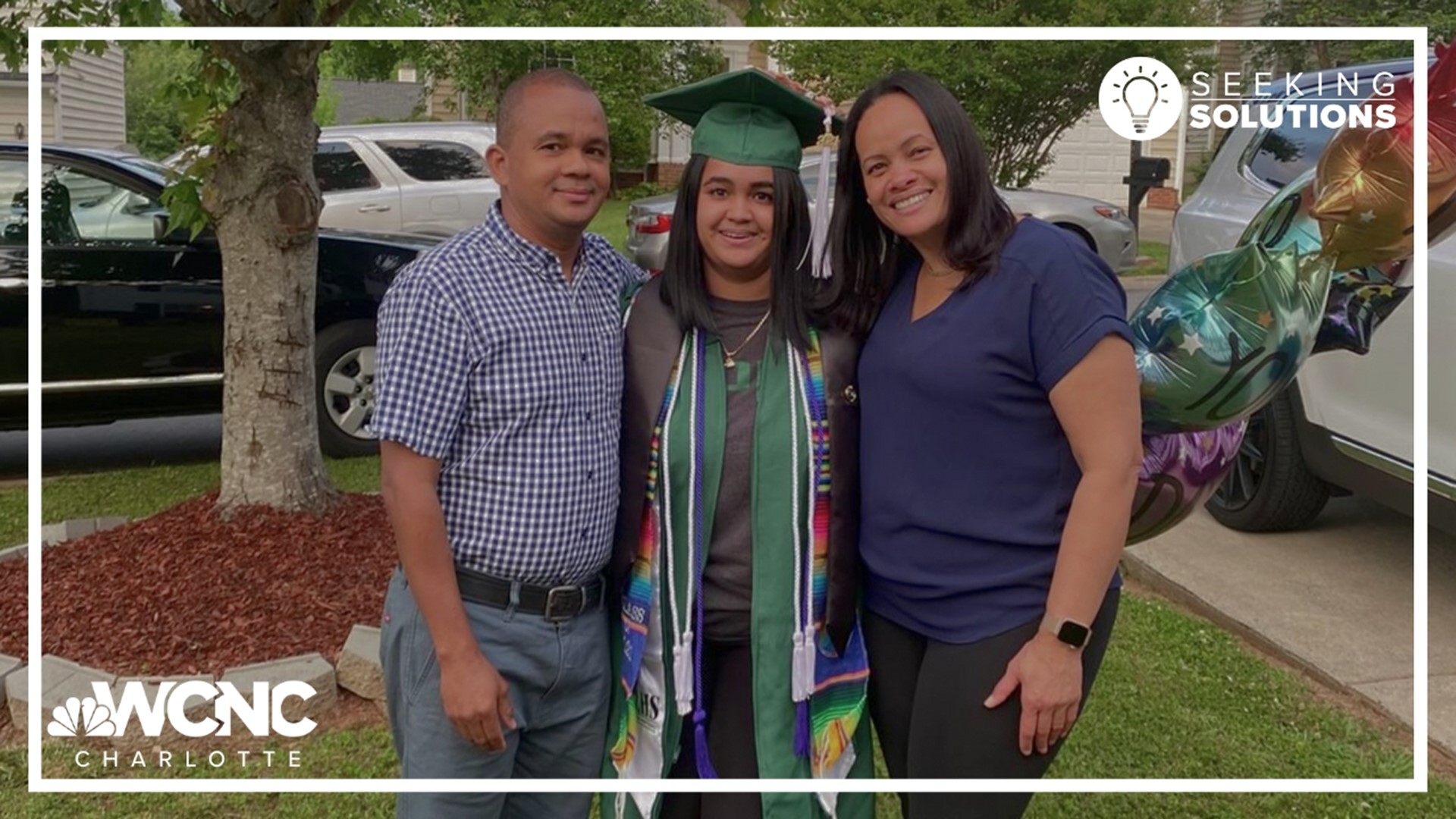
Anthony Valderrama, LACCC’s Partnership & Membership Manager, said, that putting the keys to career dreams in a place more can reach, is like putting a match to kindling ready to ignite.
“There will be no struggles to see where those resources are,” Valderrama said. “They will be in their backyard, and I think that’s really important to put those resources in front of the community that you want to serve.”
WCNC Charlotte is committed to reporting on the many issues facing the communities we serve. We tell the stories of people working to solve persistent social problems. We examine how problems can be solved or addressed to improve the quality of life and make a positive difference. WCNC Charlotte is seeking solutions for you. Send your tips or questions to newstips@wcnc.com.
Contact Vanessa Ruffes at vruffes@wcnc.com and follow her on Facebook, X and Instagram.




